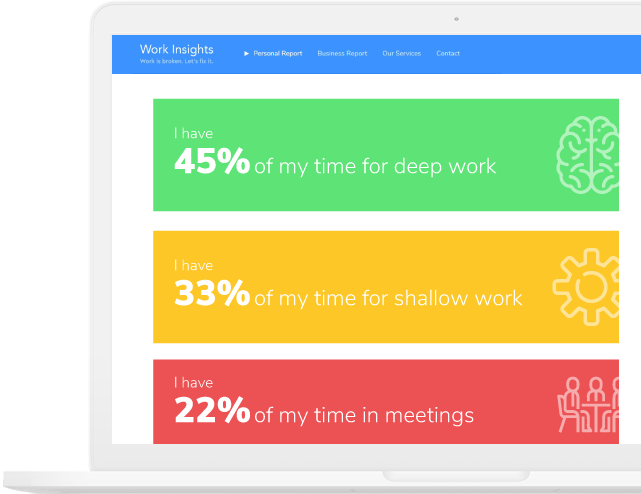This is an archived edition of MasterWP from October 2019, written by Alex and Ben.
Open Source and Power with Matt Mullenweg
Should WordPress power 85% of the internet?
As we covered a couple of weeks ago, Automattic, the company behind WordPress.com, has taken $300m of investment from Salesforce Ventures. One of the more interesting debates to come out of that was Matt Mullenweg, the CEO of Automattic,’s comment that he wanted WordPress to power 85% of the web.
This led to acclaim from some, and disdain from others. One such person who offered disdain was David Heinemeir Hansson, the co-founder of Basecamp. David got in a minor argument with Matt on Twitter, and to their credit they moved the discussion to an hour-long podcast which we’ve linked above.
The discussion touched on a number of topics but a lot of the discussion revolved around power: who has the power to make decisions in an open source project? Below are two sections I found especially interesting. Here’s Matt, arguing that WordPress has checks and balances built-in, and that if someone doesn’t like his leadership they can fork WordPress:
“Within the WordPress world, there’s been a lot of interesting takes or flavors of WordPress that are built. So this page builder is like Elementor or Visual Composer or the one that we make called Gutenberg that can sometimes have millions or sometimes even north of 10 million sites on them. And the truth is that if I had an evil hat on, like let’s say I started doing evil monopoly stuff, people could easily fork this offer and they would tomorrow. So there’s a checks and balances there.”
David rightly pushes back. Citing – and this is me paraphrasing – should someone fork it, what is the likelihood of that being a serious competitor? It’s low: WordPress has tremendous power, and whilst that power is somewhat distributed, it’s mainly centralised with Automattic. “Why would venture capitalists and otherwise invest half a billion dollars into WordPress if they didn’t see Automatic, as the company, as having a lot of power over WordPress, right?” Matt cites that only a small % of WordPress contributors are Automatticians. That might be true, but those contributors tend to be in the leading roles. You only need to look at Gutenberg to see that.
This is the key point of Matt’s argument – that because WordPress is open source it can be forked and thus this acts as a balance on centralised power – and I agree with David it’s not a strong one. WordPress has a huge industry built around it, and that community and the inertia it brings is a huge part of the value of WordPress. There was a high-profile fork of WordPress last year. Have you heard of it since? I must admit I haven’t. David is spot on: “ the odds of… [any fork] being anything than a curiosity for two days on Hacker News, I’d say extremely low”.
The conversation then shifts to what I think is the most interesting bit: a discussion of power in open source, and where that’s distributed. Here’s David:
“I think we are actually overdue a conversation in Open Source about power. And we’ve been coy about it for a long fucking time in ways that have helped not serve people but actually end up silencing them or sidelining them or whatever. That there’s a tremendous amount of power. I mean a lot of Open Source projects kind of give a wink and a nod to it… And I think ultimately it [power] needs to be constrained. That the Open Source world and the world of software and the world of the internet is better when power is checked. And power is better checked when no one sits on basically all of the pie… This idea that there is this dictator and like we should just be happy because they happen to make good choices right now… it’s not a good governing model.”
Matt, obviously, disagrees. There’s some back and forth, but the actual disagreement between Matt and David comes down to web standards: Matt says if something is good for the web is should become a standard, and WordPress can help do that, and David says we need capitalist competition to ensure innovation.
And this is the key point we’re seeing play out over and over again in WordPress, mainly because of the immense power that Matt Mullenweg does have: the continued tension between Matt’s idealism about open source, and what actually happens. We see it in Automattic’s products – aggressive advertising from Jetpack being a good example – and we see it in the direction of the platform. Matt is firmly of the opinion that open source is an inherent good and as “Benevolent Dictator for Life”, he can choose to be benevolent. Maybe that’s true and I should be more optimistic. – Alex.

U.S. Supreme Court Denies Domino’s Appeal to Determine Whether Websites Must Be Accessible
Just make it accessible already!
I commented on this when it first hit the news: Domino’s appealed a case where they were taken to court for not having an accessible website.
This is seen as a win for accessibility, however it’s not over yet. The court denied the appeal by Domino’s, so the case now needs to go to trial to decide a final outcome.
Domino’s are arguing there should be official guidelines from the government about what accessibility means, but I am not sure that’s a good idea. Getting guidelines for something like this from a body that is not an expert, and that is slow moving, means that guidelines will regularly be out of date.
At the minimum people with screen readers should be able to do everything people without screen readers can do. In the case of Domino’s they’re a massive company, they could easily do user tests, or hire an accessibility expert or two, but instead they’ve chosen to spend the money going to court.
The original case was submitted in 2016! It’s taken a long time to get this far; they could easily have fixed the problem in the intervening time, and earnt back the money from the additional pizza sales.
If you have a website, it’s your responsibility, as a web developer, to make it accessible. As Matt May commented on Twitter.
“ADA became law in 1990. The Web Content Accessibility Guidelines came out in 1999, and were updated in 2008 and 2018.
If you didn’t know by now: THIS IS YOUR RESPONSIBILITY.
It’s not too late to do better.”
Of course web designers aren’t the only people not considering accessibility. Yesterday a news story popped up about a library in New York that cost $41million and had a whole section that was only accessible via stairs.
Not only does this mean people in wheelchairs or with other mobility issues can’t browse the shelves, but library staff also will have to refill the shelves by climbing the stairs carrying all the books that need to be replaced.
This is bad design. It doesn’t matter how beautiful something is, if it’s not usable then it’s a failure.We’re the experts here. We’re the architects. We need to make sites that everybody can use, that’s what customers & clients pay us for. – Ben.

Where we go from here
Morten on the future
To follow on from my own ruminations on the future of WordPress themes Morten Rand-Hendriksen has posted where he sees things heading.
Morten does cover themes and their future, but he also looks at what other technologies and processes appear popular or gaining in popularity. There’s a number of ideas and technologies here that we (developers in particular) need to consider. Many of them will affect us in one way or another.
Personally I am not convinced by WordPress application in AR/VR (alternative/virtual reality). The tech definitely has a lot of potential but it’s mostly going to be used for games and porn (at least over the next couple of years). There’s a long way to go before Ready Player One can become a reality and we can all retire to our VR rigs and pretend the world isn’t about to implode.
Morten put ethics towards the end of his list but I’m inclined to think this is one of the bigger points. Perhaps it’s later on because it’s slightly less relevant to WordPress developers, but thinking about how people use the things that we build is really important.
Deepfakes, for example, are an amazing technical achievement but the way it’s being used is less than good. There’s all sorts of very illegal and immoral uses for the tech and the code is all on Github ready to be used and abused. It’s scary thinking about what could be done – fake news is a really big thing, and this just makes it more worrying.
Going back to the list, the references to CSS being awesome (and having more awesome coming) is really good. CSS is changing at a rapid pace now, which keeps opening up more and more opportunities for designers.
GraphQL is also an interesting one. Something particularly important if you want to use WordPress with Gatsby.
All in all, it’s an interesting look at a possible future for web developers. – Ben.

Free meetings stats for Google Calendar
Work is broken, let’s fix it
This is a fun tool: you connect your Google Calendar and it tells you how much time you’ve had available for “Deep Work” over the last year, and how much time you spent in meetings. Long-time readers know I’m moderately obsessed with Deep Work, so this was perfect for me.
I’m a little bit iffy on how accurate it is – I use a paper planner for my “deep work” and only the calendar for meetings – which led to a claim I have 96% of my time available for Deep Work, which is definitely not the case. I’m also a little bit iffy on the privacy implications of connecting your calendar to an external service. They do try and allay the privacy concerns, and maybe if I had everything in my digital calendar it’d work. Either way, cool tool in principle. – Alex.

Strategies for long projects
Keeping focused and motivated
I really enjoyed this short post on keeping focused and motivated on long projects, like writing a book or creating a new API. The author has some simple but practical suggestions: “Finding the time means being extremely defensive of your time” and “Relentless, irrational optimism is the only attitude that works”. Both seem sound, and if you’re in the middle of a long project will be worth the refresher. – Alex.
Quick Links
Talk: How better performing websites can help save the planet
Slides, SketchNotes, Interviews, & Photos from Business of Software Conference USA 2019
“People have an enormous tendency to resist change. They love to say, ‘We’ve always done it this way.’ I try to fight that.”
– Grace Hopper


